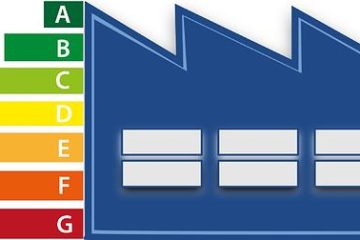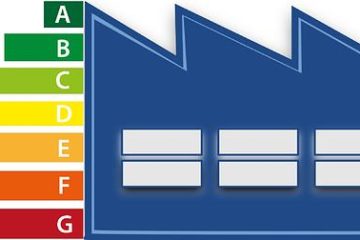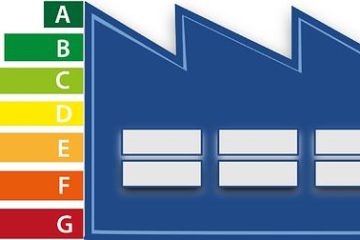Table of Contents
- Exploring the Landscape of Energy Efficiency Jobs in Canada
- Key Skills and Qualifications for a Career in Energy Efficiency
- Top Growing Industries Seeking Energy Efficiency Professionals
- How to Enhance Your Job Prospects in the Energy Sector
- Future Trends Shaping Energy Efficiency Employment Opportunities in Canada
- Q&A
- In Retrospect
Exploring the Landscape of Energy Efficiency Jobs in Canada
As industries pivot towards sustainability, energy efficiency jobs are emerging as a critical sector in Canada. Professionals engaged in this field contribute significantly to reducing carbon footprints and optimizing resource use. These roles span a diverse range of opportunities, including energy auditors, sustainability consultants, and project managers specializing in retrofitting buildings for enhanced efficiency. The integration of advanced technologies, such as smart meters and energy management systems, creates a dynamic environment ripe for innovation and career growth.
Individuals looking to enter this sector will find a variety of qualifications and skills in demand. A strong foundation in engineering, environmental science, or project management is often beneficial. Additionally, certifications such as LEED (Leadership in Energy and Environmental Design) or CEM (Certified Energy Manager) can significantly enhance employability. Here are some key skills that can set candidates apart:
- Analytical Skills: Ability to interpret energy usage data and identify trends.
- Communication Skills: Effectively conveying technical information to non-specialists.
- Sustainability Knowledge: Understanding of green technologies and practices.
The provincial governments are also investing in programs aimed at boosting energy efficiency, thereby creating additional job opportunities. For example, initiatives focused on retrofitting homes and commercial buildings for energy efficiency not only generate immediate employment but also ensure long-term sustainability goals are met. The following table illustrates government initiatives that provide funding and safety nets for those entering the energy efficiency job market:
| Initiative | Description | Eligible Participants |
|---|---|---|
| Home Renovation Grant | Financial support for homeowners to enhance energy efficiency. | Homeowners, contractors |
| Energy Efficiency Training Program | Training workshops to build skills in energy management. | Job seekers, current workers |


Key Skills and Qualifications for a Career in Energy Efficiency
In the rapidly evolving field of energy efficiency, professionals are required to possess a diverse range of skills and qualifications that align with both industry standards and technological advancements. Analytical skills are vital, allowing individuals to assess energy use patterns, calculate savings, and evaluate the effectiveness of various energy-saving measures. Equally important is project management expertise, necessary for planning and executing energy efficiency initiatives, from residential retrofits to large-scale commercial projects. Proficiency in utilizing energy modeling software is also increasingly sought after, as these tools aid in predicting energy consumption and informing stakeholders about potential improvements.
Another crucial aspect of a successful career in this sector is a solid understanding of regulatory frameworks and incentive programs related to energy efficiency in Canada. Familiarity with federal and provincial policies, including energy codes and standards, equips professionals to navigate the complexities of compliance while maximizing available funding options for projects. Additionally, professional certifications, such as LEED (Leadership in Energy and Environmental Design) or CEM (Certified Energy Manager), can significantly enhance a candidate’s appeal in the job market, signaling a commitment to sustainability and continued professional development.
Communication skills also play a pivotal role in fostering collaboration among stakeholders, including clients, government entities, and multidisciplinary teams. Professionals must effectively convey technical information in accessible terms to ensure that everyone involved understands the benefits and intricacies of energy efficiency initiatives. Furthermore, being adept at data visualization and reporting can help make compelling cases for investment in energy projects. a combination of technical knowledge, regulatory familiarity, certifications, and strong communication abilities sets the foundation for a thriving career in energy efficiency.


Top Growing Industries Seeking Energy Efficiency Professionals
As industries across Canada prioritize sustainability and reduced operational costs, the demand for energy efficiency professionals is surging. Sectors such as manufacturing, construction, and renewable energy are particularly in need of experts who can navigate the complexities of energy management. Professionals in these fields play a crucial role in optimizing energy use, implementing new technologies, and ensuring compliance with regulations focused on environmental impact.
One of the most promising sectors is the building and construction industry. With a growing emphasis on green buildings and smart design, energy efficiency specialists are essential for projects aimed at reducing overall energy consumption. These professionals conduct energy audits, recommend efficiency upgrades, and guide projects through certification processes like LEED (Leadership in Energy and Environmental Design). Furthermore, they are increasingly required to collaborate with architects and builders to integrate energy-efficient solutions that meet both aesthetic and functional needs.
Another rapidly growing industry is the renewable energy sector. As Canada moves towards cleaner energy sources, the demand for skilled professionals who understand solar, wind, and hydroelectric systems is booming. These individuals not only design and implement energy systems but also play an integral role in educating businesses about solar power incentives and energy management techniques. The intersection of innovation and sustainability in this industry is fostering numerous opportunities for professionals to advance their careers while contributing to a greener future.


How to Enhance Your Job Prospects in the Energy Sector
To improve your chances of landing a job in the accelerating energy sector, developing specialized skills is essential. Focus on gaining expertise in areas such as renewable energy technologies, energy auditing, and sustainability practices. Consider obtaining relevant certifications like the Certified Energy Manager (CEM) or Building Energy Efficiency Professional (BEEP). These credentials not only enhance your knowledge but also significantly improve your credibility among potential employers.
Networking is another effective strategy to boost your job prospects. Engage with industry professionals through conferences, webinars, and professional associations. Utilize platforms like LinkedIn to connect with key figures in the energy sector. Joining groups focused on energy efficiency can provide insights into job openings and allow you to showcase your expertise. Regularly participating in discussions can help build a strong professional reputation, making you a more attractive candidate.
Staying updated with the latest trends and technologies in the industry can set you apart from other candidates. Subscribe to relevant industry publications, and enroll in continuous education courses. Here are some key topics to keep an eye on:
| Trend/Technology | Importance |
|---|---|
| Smart Grids | Enhance efficiency and responsiveness in energy distribution |
| Energy Storage Solutions | Key to balancing supply and demand in renewable energy |
| Sustainable Building Practices | Focus on energy saving and reducing carbon footprints |


Future Trends Shaping Energy Efficiency Employment Opportunities in Canada
As Canada pivots towards a sustainable energy future, the demand for skilled workers in energy efficiency is projected to rise markedly. One of the most significant drivers of this shift is the government’s commitment to reducing greenhouse gas emissions, which is resulting in an array of new policies and programs aimed at enhancing energy conservation. The recently introduced clean growth initiatives and incentive programs pave the way for substantial growth in job opportunities across various sectors, particularly in residential and commercial energy audits, building retrofits, and renewable energy integration.
With technological advancements playing a pivotal role in shaping the energy landscape, emerging trends are expected to redefine skills and qualifications necessary for these jobs. Key areas where innovation will create employment prospects include:
- Smart Grids and Metering: The integration of IoT devices and smart technologies will necessitate skilled workers who can manage, analyze, and optimize these systems.
- Energy Management Systems: As organizations seek to enhance efficiency, roles involving the analysis and implementation of energy management solutions will flourish.
- Green Building Design: The demand for architects, engineers, and designers with expertise in sustainable practices will increase.
| Sector | Projected Job Growth (2024-2029) |
|---|---|
| Building Retrofits | 15%+ |
| Renewable Energy Installation | 20%+ |
| Energy Auditing | 18%+ |
Moreover, educational institutions are rapidly adapting their curricula to meet these evolving demands. Programs focused on sustainable engineering, energy systems technology, and environmental science are on the rise, designed to equip students with the necessary competencies for navigating this dynamic field. Collaboration between industry and academia is crucial, as it will ensure that educational outcomes align with real-world requirements. This synergy not only enhances employability but also fosters innovation that can drive Canada towards a more energy-efficient and economically robust future.
Q&A
Q&A: Exploring Energy Efficiency Jobs in CanadaQ: What are energy efficiency jobs? A: Energy efficiency jobs focus on reducing energy consumption within various sectors, including residential, commercial, and industrial. These roles involve assessing energy use, implementing conservation measures, and promoting sustainable practices to lessen environmental impacts and lower energy costs.Q: Why are energy efficiency jobs important in Canada? A: With Canada’s commitment to reducing greenhouse gas emissions and transitioning to a sustainable economy, energy efficiency jobs play a vital role. They help in mitigating climate change, improving energy security, and creating a more resilient economy. Additionally, these jobs stimulate innovation and drive investment in green technologies.
Q: What types of careers fall under the umbrella of energy efficiency? A: There’s a diverse range of careers in this sector, including energy auditors, HVAC technicians, building performance specialists, project managers for energy projects, and policy advisors. Roles can also encompass engineering, data analysis, and education in sustainable practices.
Q: Where can I find energy efficiency job opportunities in Canada? A: Many opportunities can be found through government websites, nonprofit organizations focused on sustainability, and green job boards. Networking through industry associations and attending sector-specific conferences can also lead to job openings.
Q: What qualifications are typically required for energy efficiency jobs? A: While specific requirements vary by position, many energy efficiency jobs seek candidates with backgrounds in engineering, environmental science, or energy management. Certifications such as LEED (Leadership in Energy and Environmental Design) or BPI (Building Performance Institute) can significantly enhance your employability.
Q: How can I stand out in the energy efficiency job market? A: Gaining practical experience through internships or volunteer opportunities, obtaining relevant certifications, and staying updated on the latest trends in energy sustainability can help set you apart. Networking with professionals in the field and showcasing your passion for energy efficiency can also make a positive impression.
Q: What is the future outlook for energy efficiency jobs in Canada? A: The future looks promising, as Canada continues to prioritize environmental sustainability and energy reduction initiatives. With a growing emphasis on green technology and the need for skilled workers to support new energy policies, the demand for energy efficiency jobs is anticipated to rise significantly in the coming years.
Q: Are there resources available for job seekers interested in this sector? A: Yes, many resources are available. Websites like EcoCanada and the Canadian Energy Efficiency Alliance offer job boards, training programs, and valuable information on careers in this field. Additionally, local community colleges and universities often provide courses related to energy efficiency and sustainability.
Q: How can I prepare for a career in energy efficiency? A: Start by exploring educational programs in energy management, environmental studies, or related fields. Volunteering with sustainability initiatives, attending workshops, and engaging with professional organizations can also provide valuable insights and connections. Building a strong foundation in practical skills, like data analysis or project management, will serve you well in this growing field.
This Q&A provides a comprehensive overview of energy efficiency jobs in Canada, highlighting their significance, opportunities, and pathways for individuals looking to enter this vital sector.




0 Comments